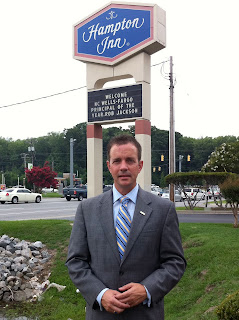I have been taught from an early age to always meet my commitments. My dad had many talks with me about the importance of “doing what you say you will do.” I have certainly tried to always live that out in my personal and professional life. As a dad, I have found myself having the same talks with my sons. (Note: I purposely chose to describe the interchanges as “talks” and not “conversations” as Dad never left room for compromise in this area.)
Imagine my consternation when I found myself unable to do what I was supposed to do during my travels in China. This blog is important to me for several reasons (keeping staff, students, and community informed about my work as the SPOY, sharing with Principals across the state my work on their behalf, routinely sharing how thankful I am to have this opportunity, and using the blog to highlight the amazing educators and their work as I encounter them along this journey.)
For the trip to China, the blog would also serve to allow the Cuthbertson Community and anyone else who might be interested to follow along as I experienced a “brand-new world.” A reporter from our local paper, the “Enquirer-Journal,” had also asked to publish excerpts in the paper to allow community members across the county to also follow along.
Suffice it to say, regular blog posts would be important to meet the obligations I made for myself. Before leaving, I checked to ensure that the hotels we were staying in would have internet access. Confirming they did, I was ready to enjoy China and share my discoveries. The first day we visited perhaps the most famous sites in China and I made a grave error. I was blown away by our visit to the Forbidden City, and the Summer Palace. I tried to capture in my blog entry how incredible the visits were. The error? Well, I happened to mention that we had visited Tiananmen Square. For daring to list that location, my blog was quickly blocked and completely inaccessible within China.
It took me some time to find out what had happened. I tried using the tricks that our creative students have used in the past to “jump” around the school’s filters only to be blocked at every turn. To be able to continue to add to the blog, I had to email the posts to our Assistant Principal Kim Warr for her to post on the blog. My very simple blog had joined Facebook, YouTube, Twitter, and Google on the banned list in China. It still seems incredible to me that a blog that simply mentions Tiananmen Square would be blocked so that the Chinese people could not read it.
Nicholas Kristof wrote in the New York Times of a similar experience, “Psst. Don’t tell the Chinese government, but I started a Chinese-language blog here in China, and it contains counterrevolutionary praise of dissidents. Now let’s count — 1, 2, 3 ... — and see how long my blog stays up. My hunch is that State Security will “harmonize” it quickly. In Chinese, Web sites are mockingly referred to as “harmonized” when the government vaporizes them so as to nurture a “harmonious society.” http://www.nytimes.com/2011/01/23/opinion/23kristof.html?_r=2
It sounds better to share that my blog was “harmonized” rather than bluntly state that they “BLOCKED” it. The truth is, by cordoning off large sections of the internet, the Chinese Government has made it harder for the Chinese people to “harmonize” with the rest of the world. We cannot learn from Chinese educators in our eLCs (Electronic Learning Communities) as we tweet great ideas back and forth because they are not allowed into the conversation. They cannot engage with us and sadly, we cannot engage with them. The Chinese people I met were friendly and warm. The teachers we observed were obviously dedicated to their work and to their students. I am sorry that they are not allowed the opportunity to grow professionally by conversing with colleagues around the world.
Sitting here at my computer, moments away from posting this latest post, I am again overcome by the feeling of gratitude for the blessing of being an American. I can access the blogs of my choice. If I chose, I could read or write comments that were unflattering to the government or our leaders. As an American educator, I am going to continue to encourage the students and teachers I encounter to learn all they can about the rest of the world and in so doing learn more about themselves. I believe that the more they do that, the more they will have to be thankful for. That reason seems a little selfish as I read it back to myself. That is not my intent. We have much to learn from others and I am grateful that we have the opportunity to do so!


